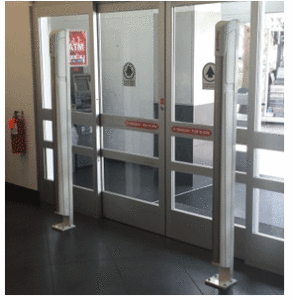
Does it matter whether you prosecute shoplifters? There are some retailers that will not prosecute a shoplifter if they catch them. Many retailers discourage their employees from following someone outside to get a vehicle description or license plate number even if they know someone stole from the store. Then there are the retailers that will allow managers to approach someone who is suspected of shoplifting. What is the best approach to addressing theft? Have you thought about why or how you approach the issue of theft?x
Why would a retailer catch a shoplifter but then not prosecute them for the crime? There are several reasons a store owner may choose not to charge a shoplifter if they do catch them.
- When a shoplifter is caught and sent to jail or in some cases a citation to appear may be presented, the store manager or person who caught the shoplifter has to go to court. This can be a time-consuming prospect. There are jurisdictions where the person who filed a complaint or prosecuted a shoplifter will be prosecuted themselves if they fail to appear in court for a case.
- Some store owners will use the promise of not prosecuting a crook if the merchandise is returned. The owner is more interested in getting their product back than what happens to the thief.
- There are managers who do not prosecute because they feel badly for the shoplifter. They believe that consideration of the person’s circumstances is an appropriate response to an offender. For example a person may say they shoplifted food because they are hungry or they stole clothes because they are homeless or needed them and could not afford to purchase them.
- There are situations when a store manager takes age into consideration. The apprehended party may be (or claims to be) a juvenile giving an age that falls into that state’s age bracket for juveniles. The manager may feel they are doing a favor by not marring the youth’s future opportunities with a criminal record. A manager may also feel sympathy for an elderly person because of advanced age or possible mental deterioration.
Each of these decisions has some merit on their own. There is nothing wrong with feeling badly for a person or their circumstances. There can be some ramifications that result from releasing someone who has been caught shoplifting if you are not careful.
Consider what happens if you decide not to prosecute someone and they leave your store after you have detained them and they were to be injured. I am always especially cautious when the party is identified as a juvenile. Anytime you are dealing with a child you have to be careful. If you choose not to contact the police after stopping someone, even if you retrieve your merchandise what proof do you have that you recovered anything from that person? Is there a chance you could be falsely accused of unlawfully detaining that person? Even if you do recover merchandise and no issue transpires, without a police officer being present to hear you tell the person not to return there is no documentation of the incident. Nothing prevents that shoplifter from returning to your store again.
Catching and prosecuting shoplifters does carry its own risks and headaches. Sometimes there are just no easy solutions. One thing you have to be very cautious of is inconsistency. If you prosecute one person and not another person are you at risk of being sued for discrimination? Could someone say you gave preferential treatment based on age, race, gender or any other factor because it was learned you previously allowed a break to other people?
If you are going to allow managers to stop people for shoplifting it is crucial that they have received quality training on how to do so safely and consistently. Be certain not to allow any behavior that would endanger your employees and do stress that they are allowed to make decisions based on how they feel about their own safety. If they believe a shopper is stealing but the person’s behavior is threatening or intimidating in some manner trust your managers to back off or if it is serious enough to contact police.
No one can tell you the best approach to dealing with shoplifters. Ultimately it is your decision to make. What I can say is that a store with a focus on customer service and a strong retail anti-theft strategy can deter the vast majority of shoplifting and eliminate the need for prosecuting shoplifters because they will leave the store empty-handed.


